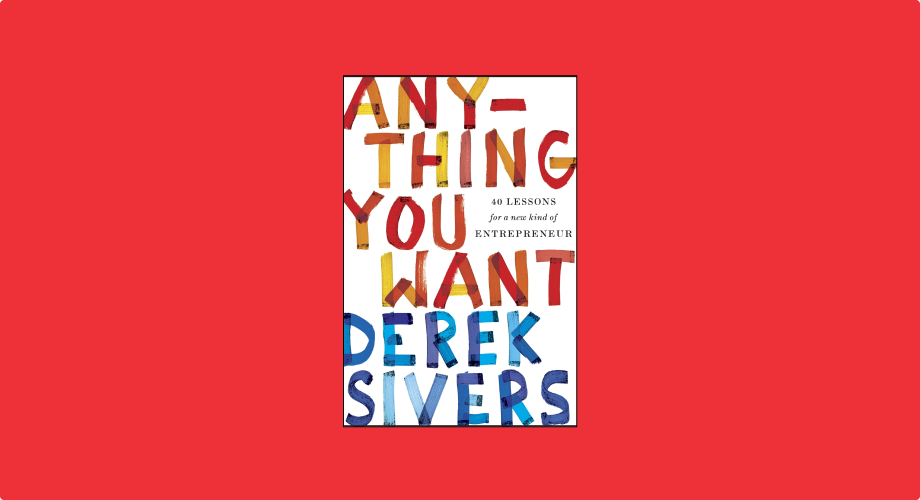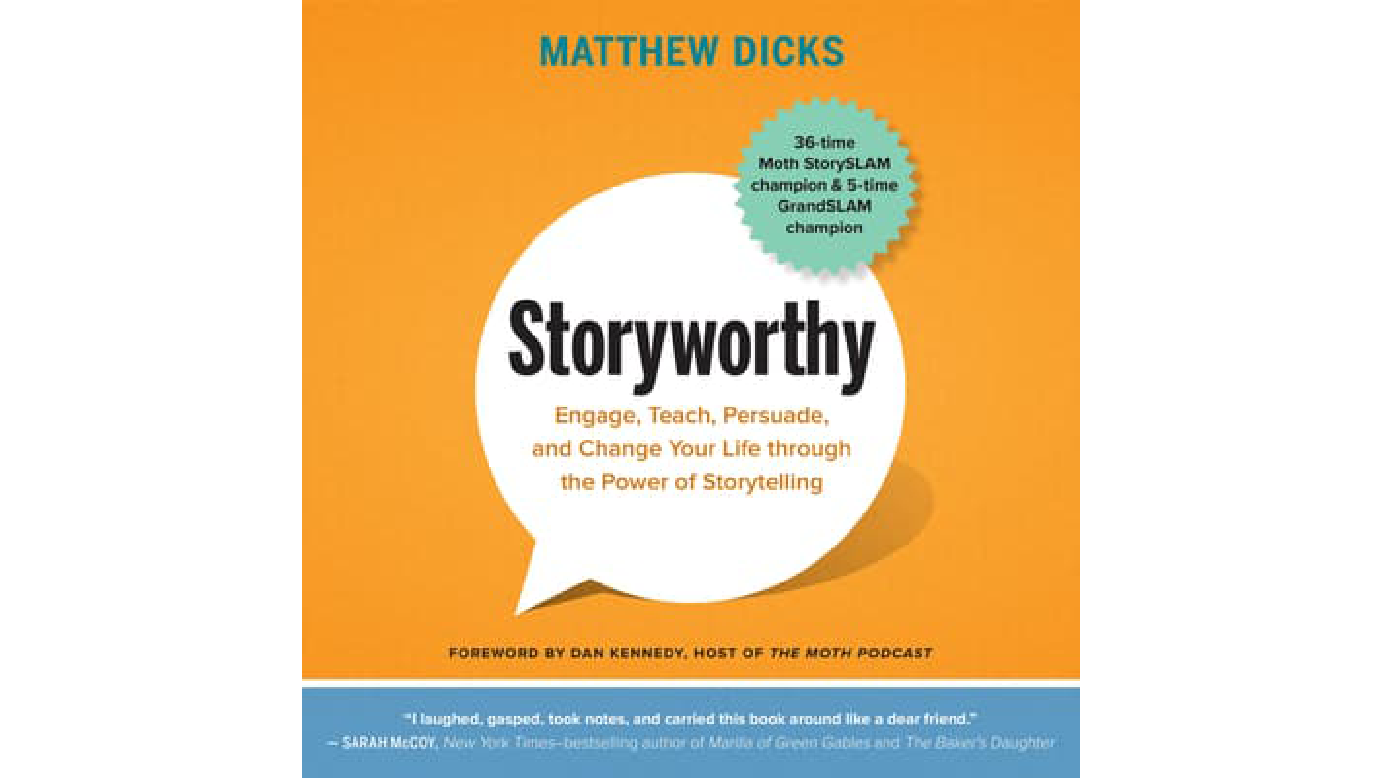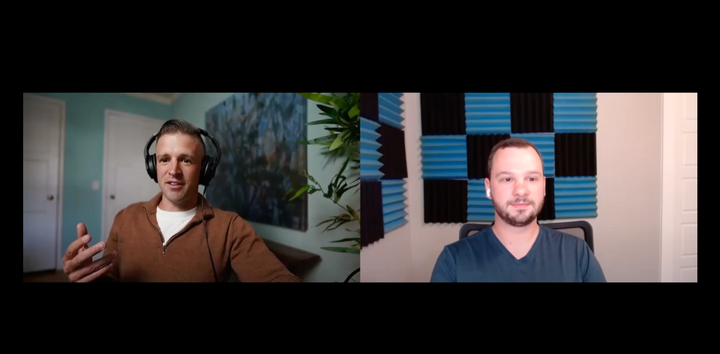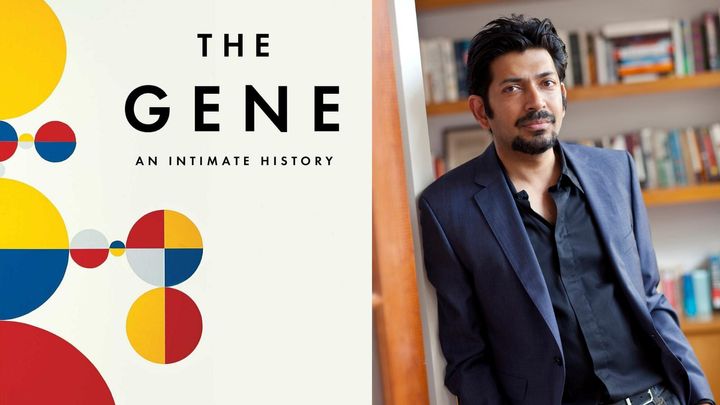Book Recap: Anything You Want by Derek Shivers
Focus on your customers, not growth. Start small and do things yourself. Remember that there are no rules in business. If you're your own boss, you define the rules.

Anything You Want - Derek Shiver's book is a short and fun read about how he created and eventually sold a website for music artists to sell their work called "CD Baby". The value of his book comes from his unconventional methodology for starting and running a business that discourages MBA-style jargon and growth strategies and instead emphasizes a human-centric approach to business that focuses on customer satisfaction and owner/employee enjoyment and reward.
For example, here's how Derek views how you ought to spend your time as a business owner.
Just pay close attention to what excites you and what drains you. Pay close attention to when you’re being the real you and when you’re trying to impress an invisible jury.
He goes on to explain why after many years, he sold CD Baby for $22 million as he really just lost interest in the project and wanted to move on to new things. As I'm facing a career transition at age 32, this thought resonated with me in the sense that perhaps life is more fun learning new things all the time. I'm seeing a lot of "beginner mindset" stuff crop up on the internet. I think it goes well with that theme.
Here are some other thoughts from Derek on how a business owner should think.
Never forget that you can make your role anything you want it to be. Anything you hate to do, someone else loves. So find that person and let her do it.
To be a true business owner, make it so that you could leave for a year, and when you came back, your business would be doing better than when you left.
Here's his advice on how he pushes decision-making down to his employees.
Everyone always remember that helping musicians is our first goal, and profit is second. You have my full permission to use that guideline to make these decisions yourself in the future. Do what makes the musicians happiest. Make sure everyone who deals with us leaves with a smile.
In the Navy, we have a buzzword for this called "Commander's Intent." Jim Mattis has a ton of thoughts on this in his book Call Sign Chaos. A lot of us struggle with delegation. Derek argues that if we can execute it properly, then it provides a sense of freedom that a business owner needs to have.
On running a business, Derek emphasizes a model that places customer-service as priority #1, is casual ("human"), and brings joy. He provides many touches of little "human touches" that CD Baby employed as part of it's human centric model.
- Handwritten notes
- Email ''FROM" line reads "CD Baby loves [name]"
- "We'll do anything for pizza" on their website. And people would actually send them pizzas!
- Phones were answered by any employee 0700 - 2200 seven days a week.
- In the "additional comments" section of an order, one customer put "I could really use some cinnamon gum" so an employee went down to the store, bought some, and threw it in.
- Goofy emails. (see below)
Here's a goofy email CD Baby would send after you placed an order.
Your CD has been gently taken from our CD Baby shelves with sterilized contamination-free gloves and placed onto a satin pillow. A team of 50 employees inspected your CD and polished it to make sure it was in the best possible condition before mailing. Our packing specialist from Japan lit a candle and a hush fell over the crowd as he put your CD into the finest gold-lined box that money can buy. We all had a wonderful celebration afterwards and the whole party marched down the street to the post office where the entire town of Portland waved “Bon Voyage!” to your package, on its way to you, in our private CD Baby jet on this day, Friday, June 6th. I hope you had a wonderful time shopping at CD Baby. We sure did. Your picture is on our wall as “Customer of the Year.” We’re all exhausted but can’t wait for you to come back to CDBABY.COM!! That one silly e-mail, sent out with every order, has been so loved that if you search Google for “private CD Baby jet,” you’ll get almost twenty thousand results. Each one is somebody who got the e-mail and loved it enough to post it on his website and tell all his friends. That one goofy e-mail created thousands of new customers.
And now in no particular order, here's a selection of my other highlights from the book.
Don’t try to impress an invisible jury of MBA professors. It’s OK to be casual.
That’s the Tao of business: Care about your customers more than about yourself, and you’ll do well.
⭐️
Never forget why you’re really doing what you’re doing. Are you helping people? Are they happy? Are you happy? Are you profitable? Isn’t that enough?
Never forget that there are thousands of businesses, like Jim’s Fish Bait Shop in a shack on a beach somewhere, that are doing just fine without corporate formalities.
To me, ideas are worth nothing unless they are executed. They are just a multiplier. Execution is worth millions.
Starting small puts 100 percent of your energy into actually solving real problems for real people. It gives you a stronger foundation to grow from. It eliminates the friction of big infrastructure and gets right to the point.
If you want to make a movie recommendation service, start by telling friends to call you for movie recommendations. When you find a movie your friends like, they buy you a drink. Keep track of what you recommended and how your friends liked it, and improve from there.
None of your customers will ask you to turn your attention to expanding. They want you to keep your attention focused on them. It’s counterintuitive, but the way to grow your business is to focus entirely on your existing customers.
Never forget that absolutely everything you do is for your customers. Make every decision—even decisions about whether to expand the business, raise money, or promote someone—according to what’s best for your customers. If you’re ever unsure what to prioritize, just ask your customers the open-ended question, “How can I best help you now?” Then focus on satisfying those requests.
By not having any money to waste, you never waste money. Since I couldn’t afford a programmer, I went to the bookstore and got a $25 book on PHP and MySQL programming. Then I sat down and learned it, with no programming experience. Necessity is a great teacher.
For every event you get invited to, every request to start a new project, if you’re not saying, “Hell yeah!” about it, say no.
Success comes from persistently improving and inventing, not from persistently doing what’s not working.



